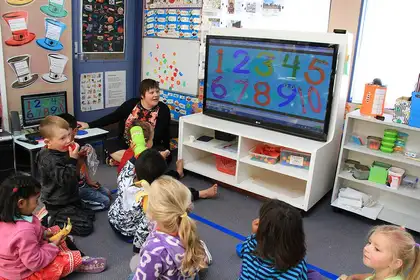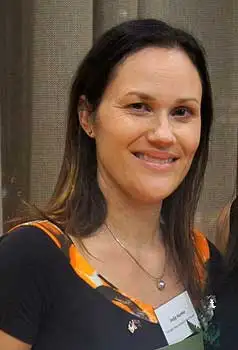
Teaching maths to culturally diverse classrooms is among topics under discussion at the MERGA conference.
Maths apps, maths anxiety, and developing better teaching tools for students from diverse socio-economic and ethnic backgrounds are among hot topics at a major conference of maths experts from around the globe gathering at Massey University this week.
As New Zealand and other countries grapple with a chronic shortage of maths teachers, and concerns at declining numeracy levels among some cohorts of learners, the conference is a chance for local teachers to hear fresh ideas and the latest research from some of the world’s top mathematics educators.
Conference convenor Dr Jodie Hunter says that New Zealand’s hosting of the Mathematics Education Research Group of Australasia’s (MERGA) conference is a coup for the country, with 120 primary and secondary teachers from around New Zealand taking part in a one-day series of workshops held on Saturday, June 30, delivered by top international maths educators.
Another 180 maths experts – from New Zealand and Australia as well as Singapore, Malaysia, South Africa, the United States, Britain, Taiwan, Indonesia and China – are attending the conference from July 1-5, giving New Zealand’s maths teaching community a chance to meet and exchange ideas with their peers from around the world and be exposed to fresh thinking about maths teaching, Dr Hunter says.
“Our conference theme is Making waves, opening spaces – and this really aligns with a major issue in mathematics education at the moment, which is about trying to achieve equity for diverse students from different socio-economic and cultural backgrounds,” Dr Hunter says.

Dr Jodie Hunter.
Too many young people get off to a bad start in learning maths because of this lack of context, she says, which largely due to a one-size-fits-all teaching approach.
It comes down to “thinking about how we teach mathematics for understanding,” she says. “It’s about finding out what maths means to kids in their lives, and then finding ways to connect with and build on that.”
Dr Hunter is based in the Institute of Education at Massey’s Auckland campus and specialises in research in collaboration with her mother, Professor Bobbie Hunter, on developing culturally-tailored mathematics models for Māori and Pasifika pupils, as well as developing algebraic understanding. Their theories and techniques have been widely adopted in numerous New Zealand schools as well as in Britain and Singapore, resulting in remarkable improvements in achievement and engagement.
Other conference presentations and panel discussion topics are; the role of gender, ethnicity and socio-economic status in maths learning; developments in digital technology and the latest apps for learning maths; how to prepare for exams in abstract algebra; the difficulties and rewards of being a maths teacher; the experiences of home-schooling parents when teaching maths; and even maths education for babies and toddlers. Testing and assessment of maths is another key issue under the spotlight at the conference.
Dr Hunter, who will present her research on developing early algebraic reasoning using Pasifika patterns, and assessment tools for conceptual understanding, says the challenge for maths teachers in the 21st century is to inspire and empower students to find their own way into maths through discovering what they already know, and being able to see how they can apply maths to their own lives
Click here for more details on the MERGA conference programme and keynote speakers.